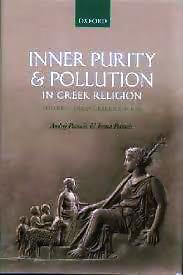A society which has seen stratification done on each and every level has also seen the notion of purity and pollution by distance respective of their castes. The ideation of purity and pollution is the major aspect in understanding the hierarchy process of the caste system. Purity and Pollution is also known as the basis of untouchability practice.

For understanding hierarch process we will take an example of India in which there were four varnas in which Brahmins hold the superior position and Shudras had the lowest position among everyone. It is even said that the purity of a person can be measured from his/her caste. Shudras were considered as the low living creatures which were designed to fulfill the needs of other three castes. They were mostly assigned as their slave but they were not allowed to go near the other castes. It was firmly believed that their mere presence can pollute their earned purity from their respective castes. In those times a Shudra condition was no less than the slaves of other countries. They were not the free man and were restricted to enter any temple, well or any public place.
Untouchability was a common practice erupted from the Purity and Pollution concept. The lower castes always found harassed by the names like Chandaals. B.R. Ambedkar also known as a popular anthropologist has given some examples which clears how purity and pollution concept was evolving in India. For example in the Peshwa Maharaja Kingdom, a Dalit was not allowed to use the public streets as his shadow over some upper caste human being is considered as an impure touch. Also, an upper caste person never had the food made by a lower caste claiming it to be a threat to their purity. Another example in which marriages are always said to be called as a social institution which clearly means people can have their partner of their own choice, but the concept of purity and pollution restricted them to choose anybody out of their caste. If people fail to bind these rules, endogamy which means giving punishment for breaking rules is practiced. This system in nowadays is popularly known as Honour Killing.
Ambedkar was hostile to this practice and said that I respect all kind of religion and caste system embedded in it but the social evils which are caused by men over the time to satisfy their superiority needs will not be entertained by me. His statement was further supported by Mahatma Gandhi that everybody is equal in the eyes of God, he also called lower caste people as Harijans that is Child of God.
Another sociologist Dipankar Gupta agreed that untouchability practice emerges from the norms of Purity and Pollution. But with passing time it is also been observed that many revolts and changing thoughts lead to the removal of this practice at some rate.
Thus it can be said that purity and pollution was an older concept which was a result of the superiority and influence of a caste over others. But untouchability was the effect of the pattern of Purity and Pollution.
I am Prerna Jha, pursuing mechanical engineering from KIIT, Odisha, But I Love to Read and Write Sociology Related Concepts and Theories. I have done schooling from MVM School, Bilaspur. I have interest in writing love stories or any specific genre. I pursue a great interest in quilting. Right now I am an aspiring writer who writes for various pages. I have participated in many social events. I am a social animal who likes to have maximum participation in any fest.
